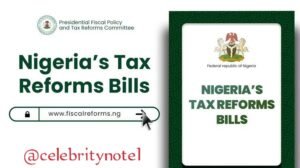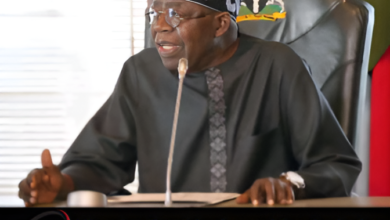The Tax Reform Bill: 7 Things you should know

Among many other reforms, the tax reform bill is one of the major reforms the current administration of President Bola Ahmed Tinubu is introducing to the nation.
Advertisements
The tax reform bill has since faced serious criticism from various stakeholders.
“I schooled in America but because I wear agbada, they think I’m ignorant. We need to allow VAT reform bill to also stay long before passing it. I was in the HoR when PIB(over 10 years ago)was introduced and we didn’t pass it until recently. So let us treat VAT bill like that too.” said Senator Ali Ndume
In a BBC Hausa interview, Borno State Governor, Professor Zulum said, “We rejected the tax reform bill; it will bring backwardness to the North, and not only to the North, but also to the South East, South South, and South West. Oyo, Osun, Ekiti, and Ondo will also have problems; it will only benefit Lagos,”
Here are seven (7) things you should know about the tax reform bill:
- Businesses with less than #50 Million annual turnover are exempted from tax payment. This means that any business whose annual revenue isn’t up to #50 million naira will no longer be paying tax.
- Over 90% of workers in the public and private sector will no longer pay income tax.
- Over 82% of what low income persons consume will be VAT free. This implies that most of the food, assessories and other products used by low income earners will no longer incur VAT. According to National Bureau of Statistics, over 40% of Nigeria’s population are low income earners. Examples of low income earners include traders, artisans, taxi drivers, commercial motorcycle riders and unskilled construction workers.
- Scrapping over 50 tax categories which local businesses initially pay.
- FG share of VAT to reduce from 15% to 10% as states and LGAs now get 90%
- The Federal Government’s share in VAT will reduce from 15% to 10%. This is because states and LGAs now get 90% of the total VAT
- Only one agency will be responsible for the collection of tax in Nigeria. Agencies like Customs, NUPRC and other government agencies will no longer collect tax.
Conclusion
As we have stated earlier, the tax reform bill is still a serious subject of debate among stakeholders, however, we hope it brings Nigerians positive results.









